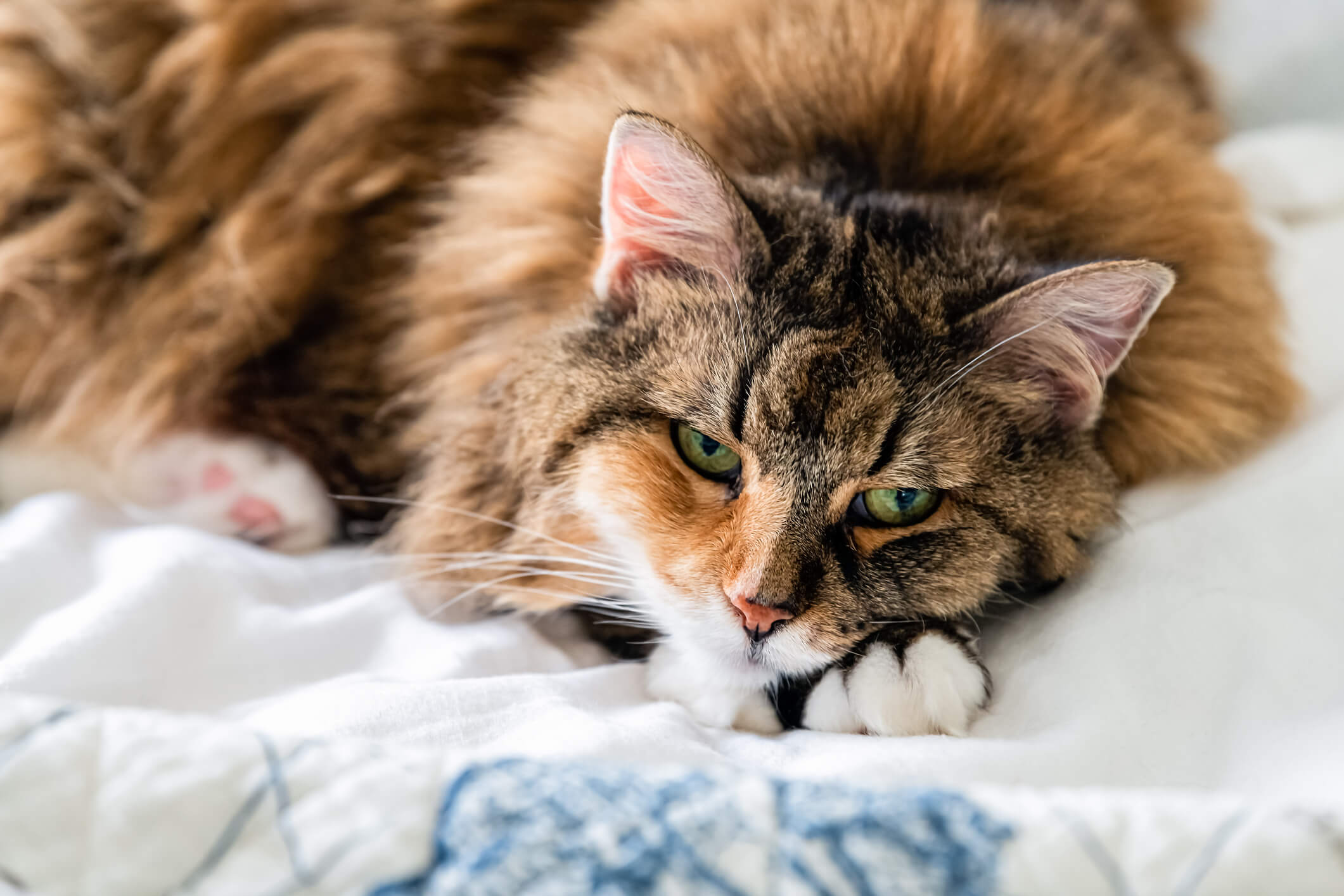
Is It Smart to Adopt a Kitten to Accompany Your Senior Cat?
If your resident cat is getting up there in years, you might be wondering whether it’s a good idea to adopt a kitten to keep them company in their old age. Can it be done? Absolutely. But should you? This answer is less clear-cut.
Differences in age, energy level and physical condition top the list for reasons why kittens and senior cats don’t often co-exist. Cat owners who have their hearts set on adopting a new feline friend should familiarize themselves with the risks involved and how to ease their senior cats into the transition.
Why cats and kittens don’t always mix
Senior cats often get territorial. They’re used to being the only cat in the house and aren’t too keen on the idea of sharing their space with a new kitten. Youngsters get excited to meet their fellow felines because they want a playmate. However, your older cat will likely view the kitten as an invasion of privacy and a source of stress. A new member to the family typically requires a long period of adjustment for the senior cat.
Kittens and senior cats are at completely different stages in life, too. Fur babies are bursting with energy all the time, while older cats simply want to nap in their favorite sunspot. With such huge differences in energy levels, it’s likely the senior cat and kitten won’t get along. One wants to play while the other just wants to be left alone. They each have their own idea of fun, which will inevitably lead to a kitty scuffle or two.
Additionally, over the years, your senior cat has grown comfortable with their daily routine. They know when it’s feeding time, when their humans are home and when they have time alone. A new kitten would throw your cat’s routine off completely. Kittens have no sense of routine because they’re still adjusting to the new environment. Senior cats can become irritable and might not have the patience to deal with an intrusive kitty. It can take many weeks for both cats to adjust to a new daily schedule.

Consider health and temperament
Cat owners should consider their senior cat’s physical health and temperament before bringing home a new kitten. Older cats are susceptible to a wide range of medical conditions that limit their mobility. A kitten who wants to play can spell bad news for arthritic joints. Those old bones can’t scurry around like they used to! Additionally, the added stress of a new family member might impact your senior cat’s health in other ways, potentially hampering their immune system or causing inflammation.
Temperament varies among cats, and owners know their feline friends better than anyone else. It’s up to you to decide if your senior cat can handle mingling with a new kitten, or if the two will never get along. Some mild-mannered cats won’t mind the extra company. Others naturally have quite the temper, even without an extra cat in the house. If you’ve got a feisty friend on your hands, adopting a kitten definitely isn’t a good idea.
Potential benefits for senior cats
Although old cats and kittens don’t always mix, there’s still a chance your senior cat will eventually warm up to the new kitten. Young and old cats who become friends can provide physical and mental health benefits to one another. In particular, an energetic kitten might coax your senior cat off the couch and make playtime a daily ritual. Some form of light exercise is necessary for senior cats because old age makes them susceptible to muscular atrophy. A play session would do them some good and keep the baby kitten happy!
Social interaction with another of their species can keep a senior cat’s mind sharp, too. As they get older, cats will likely experience some level of cognitive decline. Baby kittens are constantly bouncing off the walls, which makes them a great source of mental stimulation for senior cats. Your old kitty needs something to pique their interest, and with kittens, life never has a dull moment.
A kitty companion can also help reduce separation anxiety. Even though senior cats appreciate a solid routine, they’re well aware of when their owners leave for the day. Anxious cats get lonely and feel even worse when owners don’t arrive home from work at the usual time. Introducing a kitten into the mix might be the right solution. Once they get used to each other, kittens and senior cats can keep each other company while you’re away.
Ultimately, you’ll want to think twice before introducing a new kitten to the family. Your senior cat might take it well, but there’s a chance they won’t. The adjustment period for kittens and senior cats lasts weeks and requires copious amounts of patience. Don’t expect them to become friends right away. Until the kitten grows up, the best you might hope for is the two felines reluctantly agree to get along.


